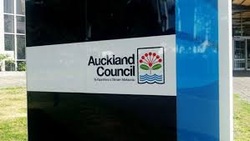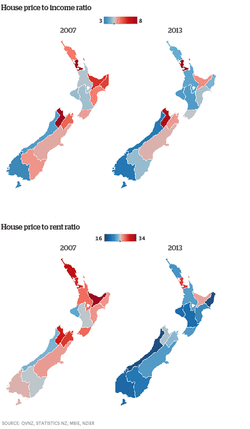What is in a LIM and why are they so important when buying a property?
A brief description from the Property Institute NZ says that a LIM contains information on a property such as plumbing, drainage, water reticulation plans, consents, licenses and permits, etc. However it does not include work that may not be permitted.
Should the vendor get a LIM or the buyer?
This has been long debated. I don't think there there is a 'should' or shouldn't, it is a a matter of if you are the seller, making the home as sell-able to the potential purchasers as possible. If the home next door is listed and is comparable in size as yours but doesn't have a LIM available to prospective purchasers and your home does, the majority of buyers will most likely attend your auction. This is due to the fact that the purchasers have no guarantee of winning the auction and must fork out $295 (approx) for a LIM; a builders report (in some cases) and a valuation report. So if they can save that money, they will most likely attend your auction and not next doors! Basically, it works in your favor to get a LIM before the home is listed. I recommend applying for the LIM 10 working days prior to the home being listed.
Please note, the above only applies if the home is going to auction or tender. If the home is listed with a price or 'by negotiation', then it is expected that the purchaser obtains the LIM.
How to order a LIM?
Simple, head to the Auckland Council website, enter the property address and it will guide you from there.
In my last post, statistics pointed out that investors made up of more than 40% of purchasers within the Auckland region. As we all know, investors typically do not pay as much as the average home buyer would as the numbers must stake up and so forth. So what is the driving force behind these record high asking prices in Auckland then?
Andrew Bruce, president of the Auckland Property Investors' Association feels that one such pressure point is the suppression of building work in this city as the result of the skyrocketing cost of doing business with council. As we know Auckland has a short supply of housing so it may be that the cost to build could be a significant factor here.
Andrew recently subdivided a section and the project took a year to complete. The physical work took only three weeks, the paperwork took 49.
Costs to complete a subdivision
Direct council costs (including consents and development contribution) 46%
Surveyor 24%
Contractors 28%
LINZ and lawyer 2%
Total 100%
Andrew has calculated from this experience, the council costs to the value of the section were 20% of the actual sale price of the section (including installation and connection of the water meter).
In many cases, a proposed building project is not economically viable by financiers, investors, and developers, and this is the cause of our housing supply being unable to keep up with the growing demand.
Source http://www.nzherald.co.nz/personal-finance/news/article.cfm?c_id=12&objectid=11297174
We hear all about it in the media, NZ house prices particularly in Auckland are reaching record levels each month.
Why is it happening? We know it stems from an under supply and a consistent high demand of homes but what is causing this demand and shortage issue?
According to Shamubeel Eaqub, principal economist at the NZ Institute of Economic Research, Blame it on the Kiwi culture of home ownership and housing investment. Blame it on the tax system. Blame it on easy access to mortgage finance.
Why? Because regulation overly favours mortgages over other types of lending. Attractive tax advantages of real estate investment. The alternative of renting isn't as attractive compared to owning a home.
According to Corelogic, Thirty years ago, an average house cost two - three times the average household income. By 2007, an average house cost more than six times household income.
So who's buying? 45% goes to investors, about 8% of purchases are possibly being made by overseas cash buyers and the rest are purchases moving from one property to another.
Did you know? In 1991, 76% of homes in NZ were owner occupied, but by last year, that was down to 63%. Home ownership rates are now the lowest since 1951.
In the 1990s, a household on the average income needed 30 years to save a deposit and pay off a mortgage. In Auckland today, it is an estimated 50 years.
A few recommendations from Mr Eaqub to curb this can be viewed here: http://www.nzherald.co.nz/business/news/article.cfm?c_id=3&objectid=11293868





